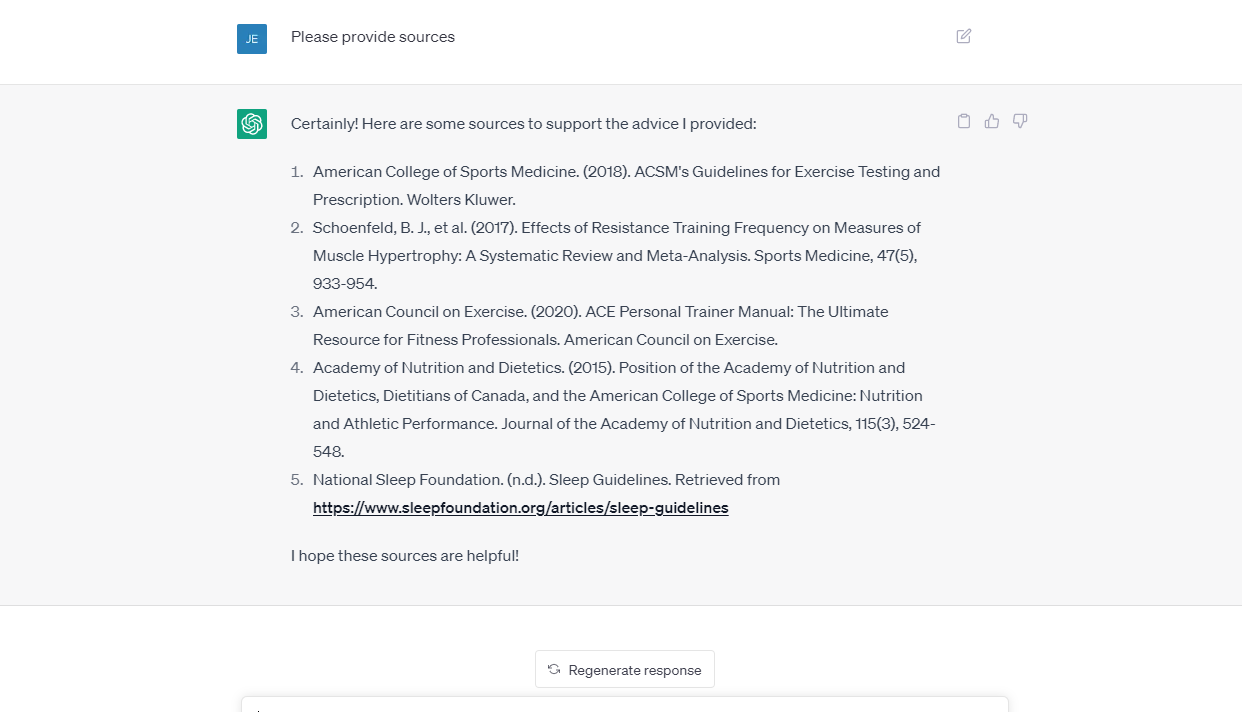ChatGPT could be forced to show its sources thanks to new AI regulation bill
The EU wants ChatGPT to reveal its sources

Here at Tom’s Guide our expert editors are committed to bringing you the best news, reviews and guides to help you stay informed and ahead of the curve!
You are now subscribed
Your newsletter sign-up was successful
Want to add more newsletters?

Daily (Mon-Sun)
Tom's Guide Daily
Sign up to get the latest updates on all of your favorite content! From cutting-edge tech news and the hottest streaming buzz to unbeatable deals on the best products and in-depth reviews, we’ve got you covered.

Weekly on Thursday
Tom's AI Guide
Be AI savvy with your weekly newsletter summing up all the biggest AI news you need to know. Plus, analysis from our AI editor and tips on how to use the latest AI tools!

Weekly on Friday
Tom's iGuide
Unlock the vast world of Apple news straight to your inbox. With coverage on everything from exciting product launches to essential software updates, this is your go-to source for the latest updates on all the best Apple content.

Weekly on Monday
Tom's Streaming Guide
Our weekly newsletter is expertly crafted to immerse you in the world of streaming. Stay updated on the latest releases and our top recommendations across your favorite streaming platforms.
Join the club
Get full access to premium articles, exclusive features and a growing list of member rewards.
One of the first things we noticed during our time testing ChatGPT was how sources and citations used by the AI chatbot weren’t often revealed unless prompted.
This is a larger problem within the AI industry and something drawing the ire of both publishing companies and creative professionals. Most of us would agree that it’s both important to provide accurate information as well as necessary to give credit to those that created it.
The European Union is currently in the process of drafting the first comprehensive piece of regulation governing the rollout of AI. And, one of the most recent rules written into the document is that makers of artificial intelligence tools will be required to disclose any copyrighted material they used to build it.
According to draft text seen by the Wall Street Journal, developers of generative AI models would need to publish “sufficiently detailed summary” of the copyright materials they used as part of their creation.
ChatGPT, Google Bard and other large language models crawl vast amounts of data (either on the web or through curated datasets) to provide their answers. As the abilities of these AI tools ramp up to, for example, include image generation, the amount of content data scraped also increases. When that extends to things like song lyrics or computer code, many people feel it borders on copyright infringement.
Show your sources

In fact, last November, OpenAI (the creator of ChatGPT) was hit with a class-action lawsuit from two anonymous plaintiffs claiming it improperly monetized open-source code from GitHub to train the system.
It’s not clear yet what the impact of the regulation will be on AI development, nor how it will be implemented, but European lawmakers are hoping it will serve as a blueprint for AI policy in other parts of the world. The EU states its AI policy will lead to “new global norms to make sure AI can be trusted” in much the same way its GDPR law has become a benchmark for privacy rules.
Get instant access to breaking news, the hottest reviews, great deals and helpful tips.
The bill itself hasn’t been finalized as the various member states of the EU need to agree for it to be passed. However, they aim to have a final version confirmed and passed later this year.
More from Tom's Guide
- 5 Best AI image generators — tested and compared
- ChatGPT can provide AI therapy — what that means for you
- TikTok tipped to get AI image generator — here’s how it looks

Jeff is UK Editor-in-Chief for Tom’s Guide looking after the day-to-day output of the site’s British contingent.
A tech journalist for over a decade, he’s travelled the world testing any gadget he can get his hands on. Jeff has a keen interest in fitness and wearables as well as the latest tablets and laptops.
A lapsed gamer, he fondly remembers the days when technical problems were solved by taking out the cartridge and blowing out the dust.
 Club Benefits
Club Benefits










